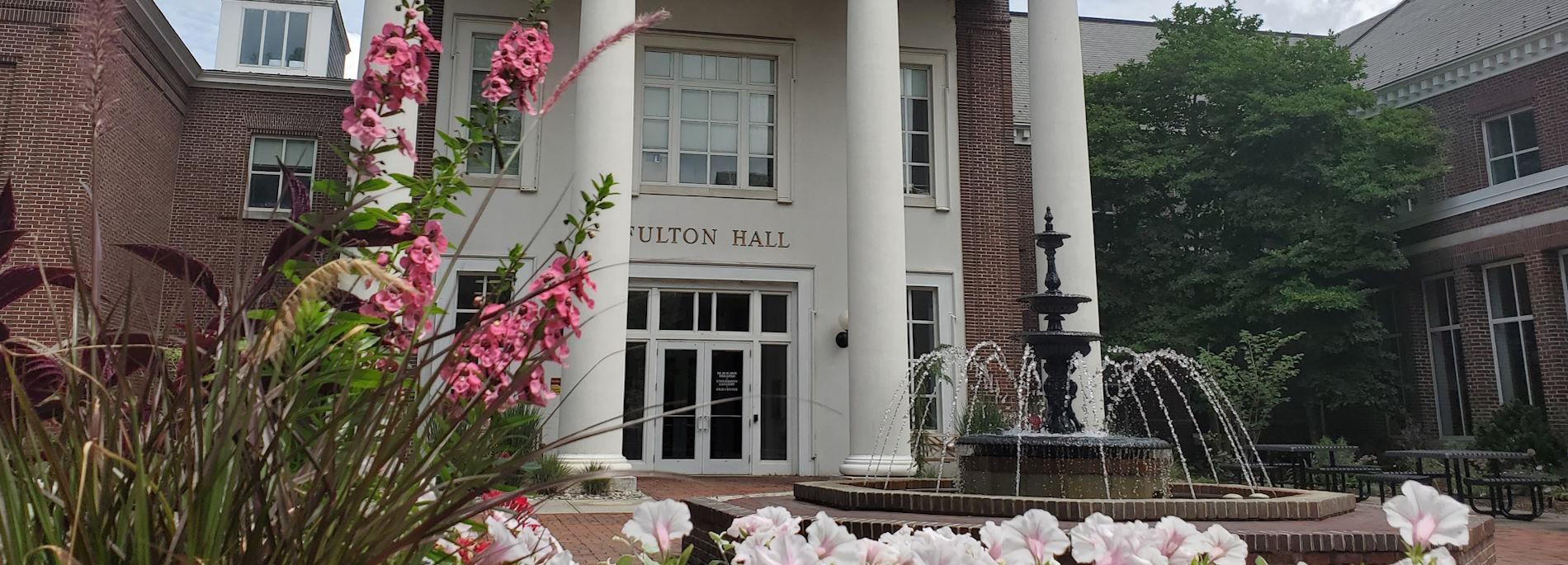
Fulton Faculty Colloquium
Featuring the teaching, scholarship and service of faculty members from across the Fulton School, the colloquia celebrate both the work of individual faculty and our disciplinary diversity. Please join your Fulton colleagues virtually this year for a series of thought-provoking colloquia! Free and open to the public.
Spring 2024 Fulton Faculty Colloquia
First Tuesday of the Month
3:30-5 p.m. • Conway Hall 152
- Featuring the research and creative work of faculty members from across the Fulton School of Liberal Arts, the colloquia celebrate both the work of individual faculty and the disciplinary diversity of the school.
- For Information: 410-543-6450.
- Download Event Flyer (PDF) - pending
February 6
- Richard Bowler (History)
Bowler’s research interests can be broadly classified as intellectual history, with a specific interest in how scientific concepts shape approaches to facets of collective human activity, in this case economics. - Greg Ference (History)
Ference continues his research on a critical period in Slovak history during and following the “Great War.” Of particular significance during this time were the relations among Slovaks living in the AustroHungarian Empire and subsequently Czechoslovakia, and a large immigrant community within the United States. More broadly, Ference’s work sheds light on the role and nature of nationalism in shaping the human experience in the 20th century and beyond.
March 5
- Farzad Karimzad, (English)
Karimzad is writing a book, Iranian Multilingualism: Identities, Ideologies and Practices, for Palgrave’s series Multilingualism in the Global South. As we expand our academic vision to be truly global in scope, we are fortunate to have Karimzad as a distinguished scholar who can help to illuminate the experiences of diverse peoples, often awkwardly lumped together, both in southwest Asia but also here in the United States. This scholarly engagement also informs excellence as we hone our offerings in critical applied fields such as English as a Second Language. - Ryan Habermeyer (English)
Habermeyer shares his collection of short stories that represent an “eco-fabulist” approach to the American West. Still quite new, “ecofabulism” merges magical realism and speculative aesthetics with ecological and environmental concerns. Building on past success, Habermeyer explores this exciting new approach, while engaging our creative writing and General Education program.
April 2
- Karl Maier (Psychology)
Maier presents and publishes his research, which generally responds to the call of the American Psychological Association for researchers to address the challenges of climate change. In fact, Maier’s work predates that call, and the biopsychosocial ecological framework (BPSE) he developed in 2015 continues to fuel his research efforts and creative thinking. The importance of greater understanding on all levels fuels a response that addresses scholarly audiences (including our students) and the wider public, including through our Changing Climate, Changing World lecture series every spring. - Rachel Steele (Psychology)
Steele is working on two articles for peer-reviewed journals focused on issues of diversity, equity and inclusion. Additionally, she plans to revise the department’s main research course, Psychology 304, to respond to the American Psychological Association’s (APA) October 2021 apology for its role in reinforcing and perpetuating systemic racism. The first article digs into the significance of the apology itself, and the second tackles the nature and significance of conspiracy theories. This work is critical to ensuring that the APA’s apology is not just performative, but truly a catalyst for reform of the discipline. This presents a great opportunity for our students to participate in the revision of an academic discipline’s methodologies and epistemologies.
May 7
- Eun-Jong Han (Communication)
Han, with two co-editors, plans to publish her second edited volume titled Displacement, Mobility, and Diversity in Korea: Diaspora Within the Homeland. While the first co-edited volume focused on the Korean diaspora outside of Korea, this second volume focuses on the returned Korean diaspora as well as issues of diversity and multiculturalism in contemporary Korean society. In particular, for her own chapter in this edited volume, she writes about the ethnic and national identities of the descendants of ethnic Koreans who migrated to Korea from Russia and the CIS (Common Wealth Independent States) countries. - Yujia Song (Philosophy)
Song is completing two articles and a book proposal. Each is on a distinct topic, though they all contribute to the innovative work she has been doing with colleagues in communication, health sciences and nursing to develop health humanities as a program that carries great potential to frame our health care professional programs more humanely and holistically.
Should you have any questions, or suggestions, regarding the FFC, please do not hesitate to contact Associate Dean Chrys Egan at cnegan@salisbury.edu.